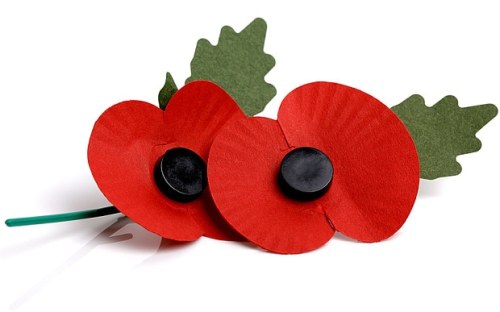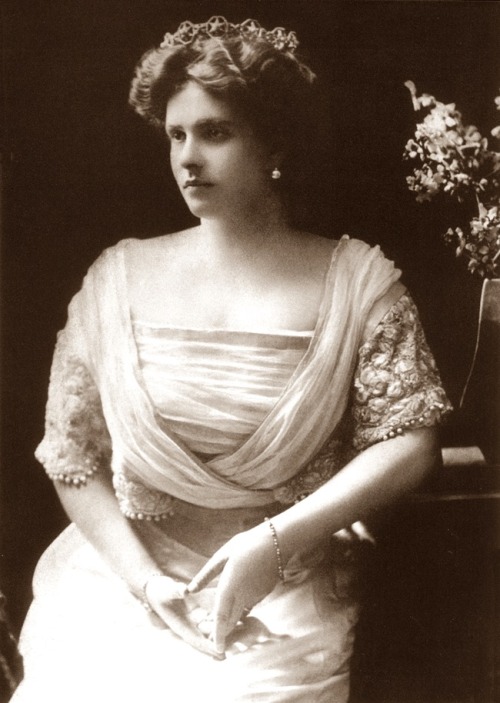#world war ii
The poppy is not about English culture. It’s about honoring the memory of the British soldiers who died in their stupid wars. This is of course a sneaky way to make unimpeachable what the fuck they were doing over there (because I can promise you it was over there) in the first place.
Sure, they provided some necessary distraction during WWII so Stalin could win the war, but the rest of their activities are an ongoing disgrace. And much like any criticism of Israel can be positioned as antisemitism by those who are terrified to engage with it, so any criticism of the British Army can be positioned as dishonoring the war dead by the same kind of people.
Well, fuck the British Army.
Post link

The Boat is Full (1981). During World War II, “neutral” Switzerland closed its borders to immigrants, effectively becoming a conspirator in the Holocaust. This Academy Award-nominated drama looks at that phenomenon on a human level. A group of six illegal immigrants, five Jews and one deserting Nazi soldier, cross the Swiss border during the night. They find refuge at an inn, and pose as a German family. However, village spies watch their every move, as the threat of deportation – and certain death – always looms.
Oh, I really liked this one. There’s something that really resonates in its exploration of escape, survival and the ways we become complicit during times of war and horror. It’s specific, and never gets bogged down in trying to tell the broader story of WWII, instead relying on the fact that its audience understands this era to hone in on this tiny group of people over just a few days, which in turn allows the film to really be personal and intimate and tragic too. Really special stuff. 8/10,

Mephisto(1981). In early-1930s Germany, a passionate stage actor finds himself before a dilemma: renounce his apolitical stance and comply with the Reich’s doctrine, or face oblivion. But, Faustian bargains never end well. What is the price of success?
This one really didn’t quite work for me, in no small part because it felt like it applied retrospective opinions on a story that felt very much of its moment. It created this disconnect between what the character was doing as he submerged himself in his art and I don’t know - - it rang a little inauthentically to me. Great performances though, particularly from the lead. 6.5/10.

Genocide(1982). Orson Welles and Elizabeth Taylor compassionately narrate this harrowing documentary about Jewish persecution in Nazi Germany, which soon turned into a notoriously industrious plan to wipe them from existence.
A profoundly affecting documentary that gives the survivors of the Holocaust a voice and real empathy in the process. It’s harrowing, and not an easy watch, but it does feel like an important one too. 8/10.
When I became conscious of myself again, I tried to slow my pace somewhat. But there was no way. These human waves were rolling forward and would have crushed me like an ant.
By now, I moved like a sleepwalker. I sometimes closed my eyes and it was like running while asleep. Now and then, someone kicked me violently from behind and I would wake up. The man in back of me was screaming, “Run faster. If you don’t want to move, let us pass you.” But all I had to do was close my eyes to see a whole world pass before me, to dream of another life.
The road was endless. To allow oneself to be carried by the mob, to be swept away by blind fate. When the SS were tired, they were replaced. But no one replaced us. Chilled to the bone, our throats parched, famished, out of breath, we pressed on.
We were the masters of nature, the masters of the world. We had transcended everything—death, fatigue, our natural needs. We were stronger than cold and hunger, stronger than the guns and the desire to die, doomed and rootless, nothing but numbers, we were the only men on earth.
At last, the morning star appeared in the gray sky. A hesitant light began to hover on the horizon. We were exhausted, we had lost all strength, all illusion.
The Kommandant announced that we had already covered twenty kilometers since we left. Long since, we had exceeded the limits of fatigue. Our legs moved mechanically, in spite of us, without us.
Night - Elie Wiesel
ONE DAY, when we had just returned from the warehouse, I was summoned by the block secretary:
“A-7713?”
“That’s me.”
“After your meal, you’ll go to see the dentist.”
“But … I don’t have a toothache…”
“After your meal. Without fail.”
I went to the infirmary block. Some twenty prisoners were waiting in line at the entrance. It didn’t take long to learn the reason for our summons: our gold teeth were to be extracted.
The dentist, a Jew from Czechoslovakia, had a face not unlike a death mask. When he opened his mouth, one had a ghastly vision of yellow, rotten teeth. Seated in the chair, I asked meekly:
“What are you going to do, sir?”
“I shall remove your gold crown, that’s all,” he said, clearly indifferent.
I thought of pretending to be sick:
“Couldn’t you wait a few days, sir? I don’t feel well, I have a fever…”
He wrinkled his brow, thought for a moment, and took my pulse.
“All right, son. Come back to see me when you feel better. But don’t wait for me to call you!”
I went back to see him a week later. With the same excuse: I still was not feeling better. He did not seem surprised, and I don’t know whether he believed me. Yet he most likely was pleased that I had come back on my own, as I had promised. He granted me a further delay.
A few days after my visit, the dentist’s office was shut down. He had been thrown into prison and was about to be hanged. It appeared that he had been dealing in the prisoners’ gold teeth for his own benefit. I felt no pity for him. In fact, I was pleased with what was happening to him: my gold crown was safe. It could be useful to me one day, to buy something, some bread or even time to live. At that moment in time, all that mattered to me was my daily bowl of soup, my crust of stale bread. The bread, the soup—those were my entire life. I was nothing but a body. Perhaps even less: a famished stomach. The stomach alone was measuring time.
Night - Elie Wiesel
These three women are the only ones born from royalty that are recipients of the honorific “Righteous Among the Nations”. Such an honor, written in Hebrew as חֲסִידֵי אֻמּוֹת הָעוֹלָם, is given by the State of Israel for non-Semitics who risked their lives for the sake of aiding Jews from annihilation upon orders by the Nazi Party.
- HRHAlice of Battenberg, Princess Andrew of Greece received the title for sheltering the Cohens in her household at Athens. Upon being questioned by the Gestapo, she used her hearing disability to her advantage and pretended that she could not understand them.
- HMQueen Elisabeth of Belgium, Duchess in Bavaria used her German connections and influence as consort to rescue hundreds of Jewish children from deportation.
- HM the Queen Mother of Romania, Princess Helen of Greece assisted thousands of Romanian Jews within 1941 to 1944.
The Duke of Edinburgh spoke of his mother’s actions,
“I suspect that it never occurred to her that her action was in any way special. She was a person with a deep religious faith, and she would have considered it to be a perfectly natural human reaction to fellow beings in distress.”
Post link






